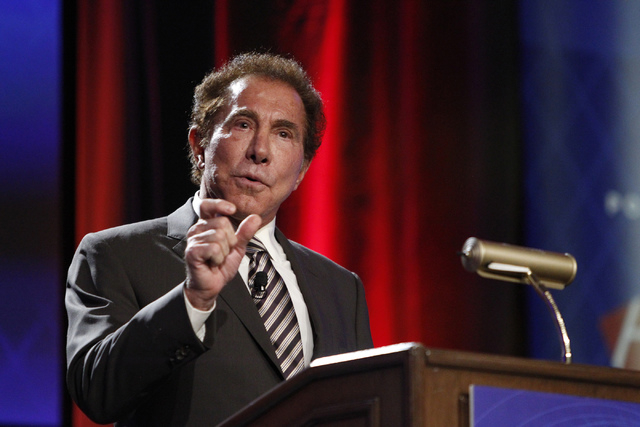Vote to reverse Bay State casinos appears losing — or will it?

By all accounts, a referendum to undo Massachusetts’ casino law should get crushed in Tuesday’s election and lose by 15 to 20 percentage points.
That’s what the most recent polls say.
Then again, this is Massachusetts.
Nothing has been simple when its comes to the state’s nascent casino business.
Caesars Entertainment Corp. was tossed from the gaming license process in 2013 when an investigation found loose ties between a distant company business partner and an alleged Russian mobster.
Wynn Resorts Ltd. Chairman Steve Wynn told the Massachusetts Gaming Commission a year ago he was “scared to death” his company would be chosen to build a Boston-area casino, only to lose the license because of rumors or unfounded allegations.
MGM Resorts International was the last remaining applicant for the western Massachusetts license, but it was still touch-and-go this year whether the company would be approved by regulators.
In the Bay State, the road to casinos has had many potholes.
Now, three years after lawmakers and the governor approved adding three Las Vegas-style casinos and a slot machine-only facility, gambling opponents pushed through an anti-gaming ballot referendum.
Voters have a chance to scuttle the whole process.
A yes vote means the hundreds of millions of dollars spent on development plans, locating and securing casino sites, winning local approval and investigating potential operators will have been for naught.
A no vote is a victory for the casinos.
Polling by The Boston Globe a few weeks ago found 53 percent of voters support keeping the gaming law, while 39 percent want to see the casinos thrown out.
Eric Schippers, Penn National vice president of public affairs, said the company takes nothing for granted.
During Penn’s third-quarter earnings conference call last month, Schippers said the company is part of a broad-based coalition that includes unions and public safety advocates working to defeat the referendum.
That support includes a recent $1 million campaign contribution from Penn National to the coalition, bringing the company’s overall total to $3.2 million since July.
The casino operator is protecting its investment, a $225 million slot machine-only casino attached to Plainridge Park Racecourse. Penn has invested more than $100 million in the Massachusetts gaming push, including $42 million to secure the facility and $25 million for the license.
The casino operator is halfway through construction of the slot machine casino to open next June.
Schippers said Penn’s effort is focused on the jobs and revenue casinos would create for the state and local communities. The casinos also would help recapture $1 billion annually spent by Massachusetts residents in out-of-state casinos.
Penn National CEO Tim Wilmott hopes voters are getting the message and “appreciate the substantial economic and employment benefits that gaming will bring to the Commonwealth.”
The ballot question has brought detente to the bickering factions of casino industry.
Penn and MGM Resorts, which is licensed to build an $800 million hotel-casino in Springfield, feuded in recent years over casino locations on the East Coast. MGM Resorts has donated $2.5 million to the pro-gaming coalition.
Wynn Resorts, which earned a license in September for the Boston area to build a $1.6 billion property in the town of Everett, donated $1 million to defeat the referendum.
The Washington, D.C.-based American Gaming Association, which normally avoids statewide ballot referendums, targeted a series of its “Get to Know Gaming” ads in the Boston area in recent weeks, touting the industry’s $240 billion annual economic impact across the country.
The pro-casino Coalition to Protect Jobs has raised more than $7.5 million, according to the most recent campaign spending reports. The Repeal the Casino Deal Committee has raised $436,000.
Union Gaming Group analyst Robert Shore said the gaming industry campaign contributions will be money well spent. He expects the referendum to lose handily Tuesday.
“The profiles for projected economic impact encompassing funding for education and infrastructure, as well as projected job creation of 15,000 jobs, remains compelling for host communities,” Shore told investors last month. “Additionally, we note that incremental license fee revenue has already been considered within the (Massachusetts) budget, therefore implying tangible downside for the state if projects are shelved.”
Outgoing Gov. Deval Patrick, who signed the original casino legislation, and House Speaker Robert DeLeo, who backed the bill, oppose the referendum. Candidates hoping to replace Patrick also have said they will vote no on the measure.
The highest-profile supporter of the referendum is U.S. Sen. Elizabeth Warren, D-Mass., who is sometimes touted as an alternative to Hillary Clinton for the 2016 Democratic presidential nomination. The Boston Globe editorialized in favor of the casino repeal.
A year ago, it seemed Massachusetts was doing everything in its power to trash what many analysts believe would become a lucrative gaming destination.
But events changed and licenses were awarded.
MGM Resorts could start building in Springfield as soon as the referendum is declared dead.
Wynn Resorts is moving ahead with a regulatory agency-requested redesign of its hotel-casino and is expected to provide a cleanup plan for the heavily polluted 30-acre former Monsanto Chemical Co. site along the Mystic River across from Boston.
Even Massachusetts couldn’t screw up Tuesday’s vote.
Or could it?
Howard Stutz’s Inside Gaming column appears Wednesdays and Sundays. He can be reached at hstutz@reviewjournal.com or 702-477-3871. Find him on Twitter: @howardstutz.


















